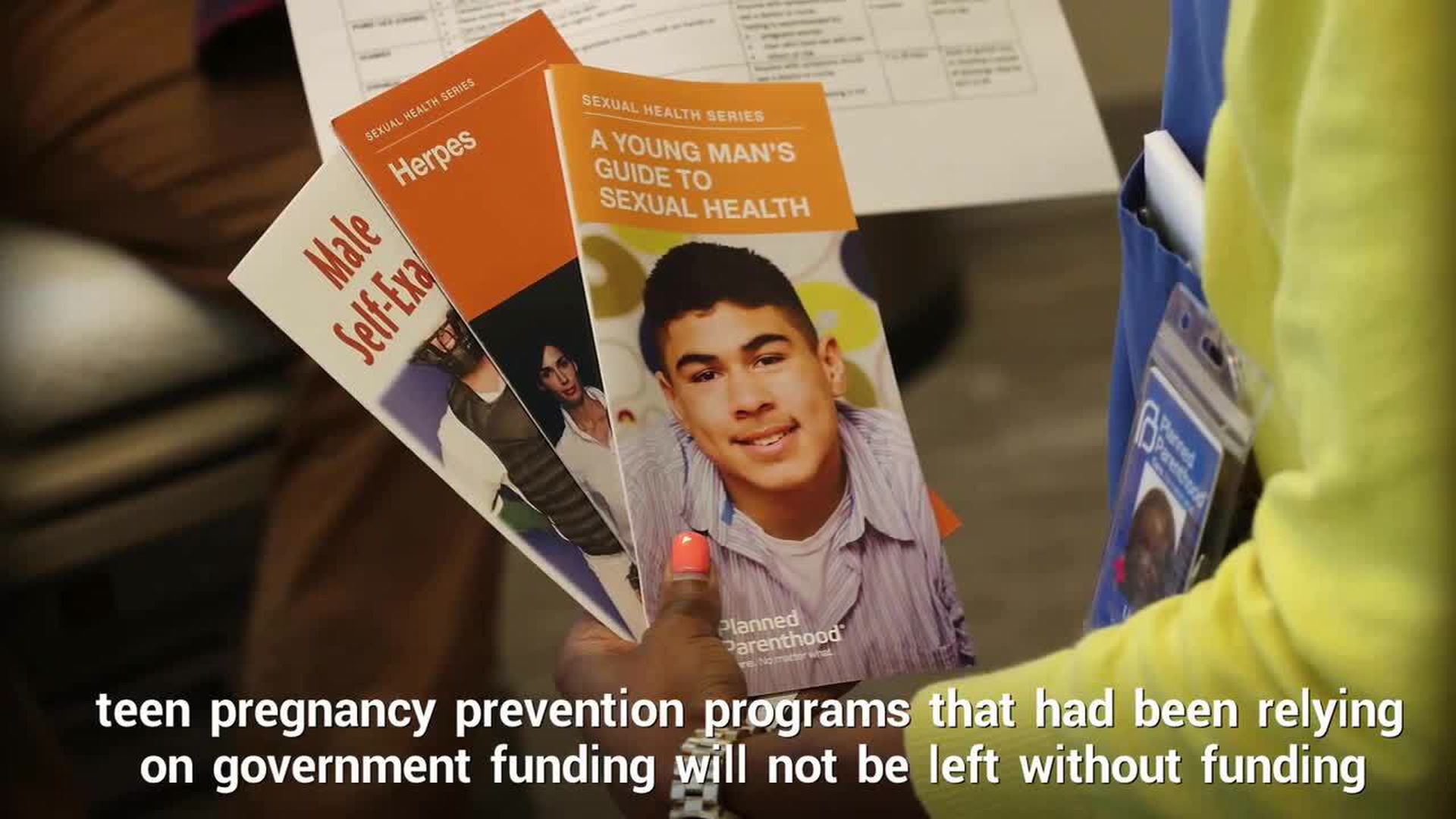Sexual health for teenagers in America has taken a page from Mean Girls. As Coach Carr infamously said in that fateful scene, "Don't have sex, because you will get pregnant and die! Don't have sex in the missionary position, don't have sex standing up, just don't do it, OK, promise?"
Unfortunately, there's no joke when it comes to teenage experiences across America who now face higher risks of pregnancy thanks to the decisions of our current administration. The White House has quietly cut $213.6 million in funding to prevent teen pregnancy, according to a Reveal report from the Center for Investigative Reporting. For more than 81 teen pregnancy prevention programs that had been relying on government funding through June 2020, this cut will leave them without funding after June 2018. Crucial programs like STI testing clinics, classes for parents to learn how to talk to teens about sex, and sex education programs will cease to function and research will be scrapped.
Related | Planned Parenthood Vows To Keep Fighting Under a Trump Presidency
The U.S. Department of Health and Human Services' decision will end Obama-era grants that researched scientifically sound ways to prevent teen pregnancy. It's a massive blow to crucial funding for a health issue that now goes against the vehemently pro-life administration, which includes the Health and Human Services Secretary Tom Price, who once said there are literally no women who cannot afford birth control and that funding for birth control "is a trampling on religious freedom and religious liberty in this country."
The reality is that, in America, while teenage pregnancy rates are at record lows, one in four women will still get pregnant by the age of 20, with a disproportionate number of those women coming from poor and minority communities. Without proper research, the country will fall back on the abstinence-only method of education that Trump's administration wants to invest $277 million into as the primary means of fighting teenage pregnancy.
In a 2011 study, researchers found that an "increasing emphasis on abstinence education is positively correlated with teenage pregnancy and birth rates" and, in separate data, the states with the highest birth rates-- Arkansas, Oklahoma, and Mississippi--also placed higher emphasis on abstinence-only education.































